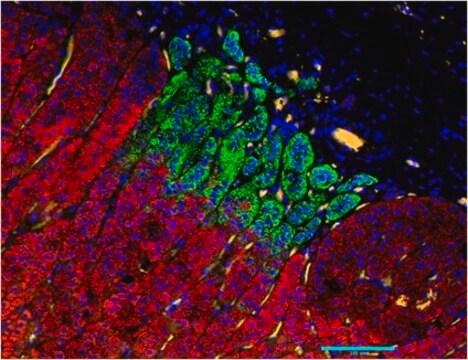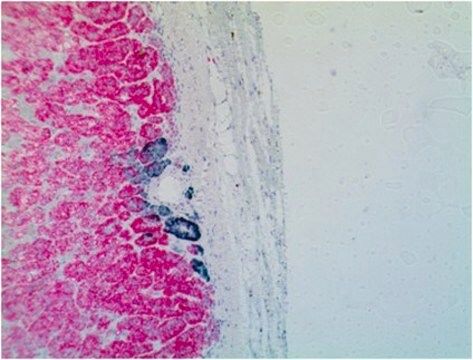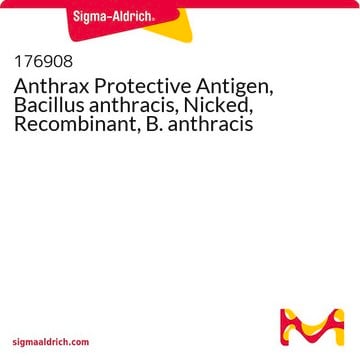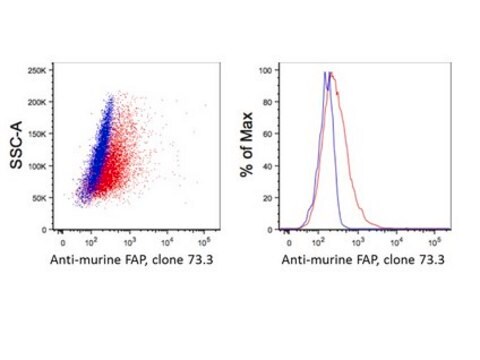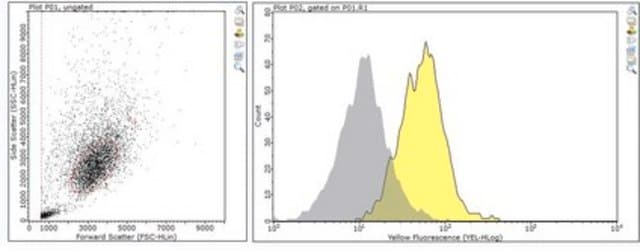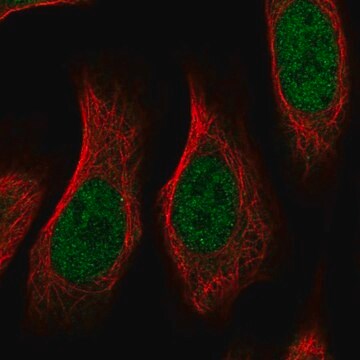NS340
Milli-Mark® ChromaPan Neuronal Marker-ORC
Milli-Mark ChromaPan Neuronal Marker-ORC is an antibody targeting the ORC protein, validated for use in ICC & IF.
Se connecterpour consulter vos tarifs contractuels et ceux de votre entreprise/organisme
About This Item
Code UNSPSC :
12352203
eCl@ss :
32160702
Nomenclature NACRES :
NA.41
Produits recommandés
Clone
polyclonal
Niveau de qualité
Espèces réactives
human, mouse, rat
Fabricant/nom de marque
Milli-Mark®
Technique(s)
immunocytochemistry: suitable
immunofluorescence: suitable
Conditions d'expédition
wet ice
Description générale
The Milli-Mark ChromaPan Neuronal Marker-ORC is a complete multi-species neuronal antibody blend with an open rabbit channel (ORC) that specifically detects axons, dendrites, and cell bodies with different fluorophores. The Multi-species Primary Antibody blend does not have a rabbit IgG; this allows the researcher to colocalize their own rabbit IgG (against their target protein) to the neuronal cytoarchitecture.
Antibodies to neuronal proteins have become critical tools for identifying neurons and discerning morphological characteristics in culture and complex tissue. Neuron-specific antibodies are convenient precision tools useful in revealing cytoarchitecture, but are limited to the protein target distribution within the neuron, which may differ greatly from nucleus to soma to dendrite and axon. To achieve as complete a morphological staining as possible across all parts of neurons, Millipore has developed a multi-species primary antibody blend that reacts against key somatic, dendritic, and axonal proteins distributed across the neuronal architecture that can then be detected by a single multi-species secondary antibody blend containing discrete fluorophores. As a result, different morphological features (somatic, dendritic, and axonal) are illuminated in different colors: The somato-dendritic cytoarchitecture is detected with DyLight 488 conjugated secondary, and the somato-axonal cytoarchitecture is detected with DyLight 649 conjugated secondary antibody. The primary antibody blend does not contain any rabbit IgGs. The researcher can add a rabbit IgG against their target protein which can be detected with the secondary antibody blend provided by a cyanine 3 conjugated secondary against Rabbit IgG. This pan-neuronal antibody cocktail has been validated in a variety of cell and tissue cultures, giving researchers a convenient and specific qualitative and quantitative tool for studying neuronal morphology.
Antibodies to neuronal proteins have become critical tools for identifying neurons and discerning morphological characteristics in culture and complex tissue. Neuron-specific antibodies are convenient precision tools useful in revealing cytoarchitecture, but are limited to the protein target distribution within the neuron, which may differ greatly from nucleus to soma to dendrite and axon. To achieve as complete a morphological staining as possible across all parts of neurons, Millipore has developed a multi-species primary antibody blend that reacts against key somatic, dendritic, and axonal proteins distributed across the neuronal architecture that can then be detected by a single multi-species secondary antibody blend containing discrete fluorophores. As a result, different morphological features (somatic, dendritic, and axonal) are illuminated in different colors: The somato-dendritic cytoarchitecture is detected with DyLight 488 conjugated secondary, and the somato-axonal cytoarchitecture is detected with DyLight 649 conjugated secondary antibody. The primary antibody blend does not contain any rabbit IgGs. The researcher can add a rabbit IgG against their target protein which can be detected with the secondary antibody blend provided by a cyanine 3 conjugated secondary against Rabbit IgG. This pan-neuronal antibody cocktail has been validated in a variety of cell and tissue cultures, giving researchers a convenient and specific qualitative and quantitative tool for studying neuronal morphology.
Spécificité
NS340 is specific to axons, dendrites including spines, and the cell body of neurons.
Reactivity with other species has not been determined.
Immunogène
Epitope: Whole Neuron Marker
Application
Immunocytochemistry Protocol
1. Culture neurons as desired. When ready, gently wash with PBS and fix cells with 4% paraformaldehyde in PBS, 5-15 min at room temp (RT).
2. Wash with PBS, 3 x 5min each, at RT and block with 1X blocking buffer for 1 hr at RT.
Note: The blocking buffer provided is supplied as a 5X concentrate. Dilute the concentrate to 1X strength using Milli-Q water. For example, add 20 ml of Milli-Q water to 5 ml of 5X blocking buffer.
3. Incubate cells with ChromaPan Multi-species Primary Antibody blend for 2hr at RT (dilute antibody 1:125 to 1:250 in blocking buffer). Optimal working concentrations must be determined by the end user.
Optional: Rabbit IgG against target protein can also be added to the ChromaPan primary antibody mixture. Optimal working conditions must be determined by the end user. If rabbit IgG is added skip step 4.
4. Wash with PBS, 3 x 5min each, and incubate cells with rabbit IgG against target protein. Optimal working conditions must be determined by the end user.
5. Wash with PBS, 3 x 5min each, and incubate cells with Multi-species Secondary Antibody blend (1:150 in blocking buffer) for 1hr at RT (validated with Chroma Pan to produce minimal background). Optimal working concentrations must be determined by the end user.
Optional: DAPI (1:1000) can also be added to the secondary mixture. If DAPI is added skip step 6.
6. Wash with PBS, 3 x 5min each, and incubate cells with DAPI (1:1000 in blocking buffer) for 5min at RT. Optimal working concentrations must be determined by the end user.
7. Wash with PBS, 3 x 5min each, and cover slip with LIGHT DIAGNOSTICS Mounting Fluid (Catalog No. #5013). View using fluorescent microscope with appropriate filter.
1. Culture neurons as desired. When ready, gently wash with PBS and fix cells with 4% paraformaldehyde in PBS, 5-15 min at room temp (RT).
2. Wash with PBS, 3 x 5min each, at RT and block with 1X blocking buffer for 1 hr at RT.
Note: The blocking buffer provided is supplied as a 5X concentrate. Dilute the concentrate to 1X strength using Milli-Q water. For example, add 20 ml of Milli-Q water to 5 ml of 5X blocking buffer.
3. Incubate cells with ChromaPan Multi-species Primary Antibody blend for 2hr at RT (dilute antibody 1:125 to 1:250 in blocking buffer). Optimal working concentrations must be determined by the end user.
Optional: Rabbit IgG against target protein can also be added to the ChromaPan primary antibody mixture. Optimal working conditions must be determined by the end user. If rabbit IgG is added skip step 4.
4. Wash with PBS, 3 x 5min each, and incubate cells with rabbit IgG against target protein. Optimal working conditions must be determined by the end user.
5. Wash with PBS, 3 x 5min each, and incubate cells with Multi-species Secondary Antibody blend (1:150 in blocking buffer) for 1hr at RT (validated with Chroma Pan to produce minimal background). Optimal working concentrations must be determined by the end user.
Optional: DAPI (1:1000) can also be added to the secondary mixture. If DAPI is added skip step 6.
6. Wash with PBS, 3 x 5min each, and incubate cells with DAPI (1:1000 in blocking buffer) for 5min at RT. Optimal working concentrations must be determined by the end user.
7. Wash with PBS, 3 x 5min each, and cover slip with LIGHT DIAGNOSTICS Mounting Fluid (Catalog No. #5013). View using fluorescent microscope with appropriate filter.
Research Category
Neuroscience
Neuroscience
Research Sub Category
Neuronal & Glial Markers
Neuronal & Glial Markers
Composants
1) 5X Blocking Buffer (Part No. CS204291): 5 ml of an optimized blocking buffer is provided and contains PBS, BSA, serum, trition X-100, and 0.05% azide. Store at 2-8°C.
2) Multi-species Primary Antibody blend (ORC) (Part No. CS204300): 100uL of a proprietary antibody blend with host specific antibodies that reacts against key somatic, nuclear, dendritic and axonal targets. It does not contain rabbit IgG. Presented in PBS containing 0.05% azide. Store at 2-8°C.
3) Multi-species Secondary Antibody blend (Part No. CS204289): 100 µL of a secondary antibody blend containing host specific IgG antibodies against mouse, rabbit, and chicken, conjugated to DyLight 488, cyanine 3, and DyLight 649 dyes respectively. Each individual set has been species absorbed against H, R, B, Gt, Sh, Gp, Eq and/or M, Rb, Ch to minimize background and cross reactivity. Presented in 0.01M Sodium Phosphate, 0.25M NaCl, pH 7.6 with 15 mg/mL BSA, and 0.05% sodium azide. Store at 2-8°C, away from light.
4) DAPI (Part No. CS202687): Vial contains 10 µL of 0.1mg/mL of DAPI. Store at 2-8°C, away from light.
2) Multi-species Primary Antibody blend (ORC) (Part No. CS204300): 100uL of a proprietary antibody blend with host specific antibodies that reacts against key somatic, nuclear, dendritic and axonal targets. It does not contain rabbit IgG. Presented in PBS containing 0.05% azide. Store at 2-8°C.
3) Multi-species Secondary Antibody blend (Part No. CS204289): 100 µL of a secondary antibody blend containing host specific IgG antibodies against mouse, rabbit, and chicken, conjugated to DyLight 488, cyanine 3, and DyLight 649 dyes respectively. Each individual set has been species absorbed against H, R, B, Gt, Sh, Gp, Eq and/or M, Rb, Ch to minimize background and cross reactivity. Presented in 0.01M Sodium Phosphate, 0.25M NaCl, pH 7.6 with 15 mg/mL BSA, and 0.05% sodium azide. Store at 2-8°C, away from light.
4) DAPI (Part No. CS202687): Vial contains 10 µL of 0.1mg/mL of DAPI. Store at 2-8°C, away from light.
Qualité
Routinely tested on rat E18 cortex primary neurons in Immunocytochemistry 1:150 - 1:100.
Forme physique
Blended polyclonal antibody cocktail in PBS with 0.05% NaN3.
Format: Purified
Stockage et stabilité
Maintain at 2-8°C for up to 6 months from date of receipt.
Remarque sur l'analyse
Control
Cortical neurons
Cortical neurons
Informations légales
MILLI-MARK is a registered trademark of Merck KGaA, Darmstadt, Germany
Clause de non-responsabilité
Unless otherwise stated in our catalog or other company documentation accompanying the product(s), our products are intended for research use only and are not to be used for any other purpose, which includes but is not limited to, unauthorized commercial uses, in vitro diagnostic uses, ex vivo or in vivo therapeutic uses or any type of consumption or application to humans or animals.
Mention d'avertissement
Warning
Mentions de danger
Conseils de prudence
Classification des risques
Aquatic Chronic 3 - Eye Irrit. 2
Code de la classe de stockage
12 - Non Combustible Liquids
Point d'éclair (°F)
Not applicable
Point d'éclair (°C)
Not applicable
Certificats d'analyse (COA)
Recherchez un Certificats d'analyse (COA) en saisissant le numéro de lot du produit. Les numéros de lot figurent sur l'étiquette du produit après les mots "Lot" ou "Batch".
Déjà en possession de ce produit ?
Retrouvez la documentation relative aux produits que vous avez récemment achetés dans la Bibliothèque de documents.
Notre équipe de scientifiques dispose d'une expérience dans tous les secteurs de la recherche, notamment en sciences de la vie, science des matériaux, synthèse chimique, chromatographie, analyse et dans de nombreux autres domaines..
Contacter notre Service technique
